Mexico
Driven by factors like violence, gangs, climate change and economic hardship, an estimated 25 million people, half of them women, migrate across Latin America each year. Many arrive at Mexico’s southern border—including 45,000 women, mostly from Central America—making the country one of the largest migrant corridors in the world. Mexico is many things for migrants: a country of origin, destination, transit and return.
During their perilous journey, many migrant women endure sexual and gender-based violence. Without local connections or knowledge when they cross into Mexico, these women often have acute sexual and reproductive health needs, yet fear they’ll be deported if they seek care.
To address these urgent needs, Ipas Latin America and the Caribbean built strong partnerships with federal, state, and local organizations and institutions . Together, we train health workers, provide health education for migrants, and have created the first Spanish-language chatbot specifically for migrants that offers reliable information on sexual violence, reproductive rights, abortion access, and how to find local services and support.
Photography by Victoria Razo for Ipas
- Mexico
- Ipas's work with migrants
- Central America
In Chiapas and Tabasco states in southern Mexico, we documented the work Ipas Latin America and the Caribbean has done with local partners to support migrants’ reproductive health. The photos, videos and stories on this page are from that documentation.
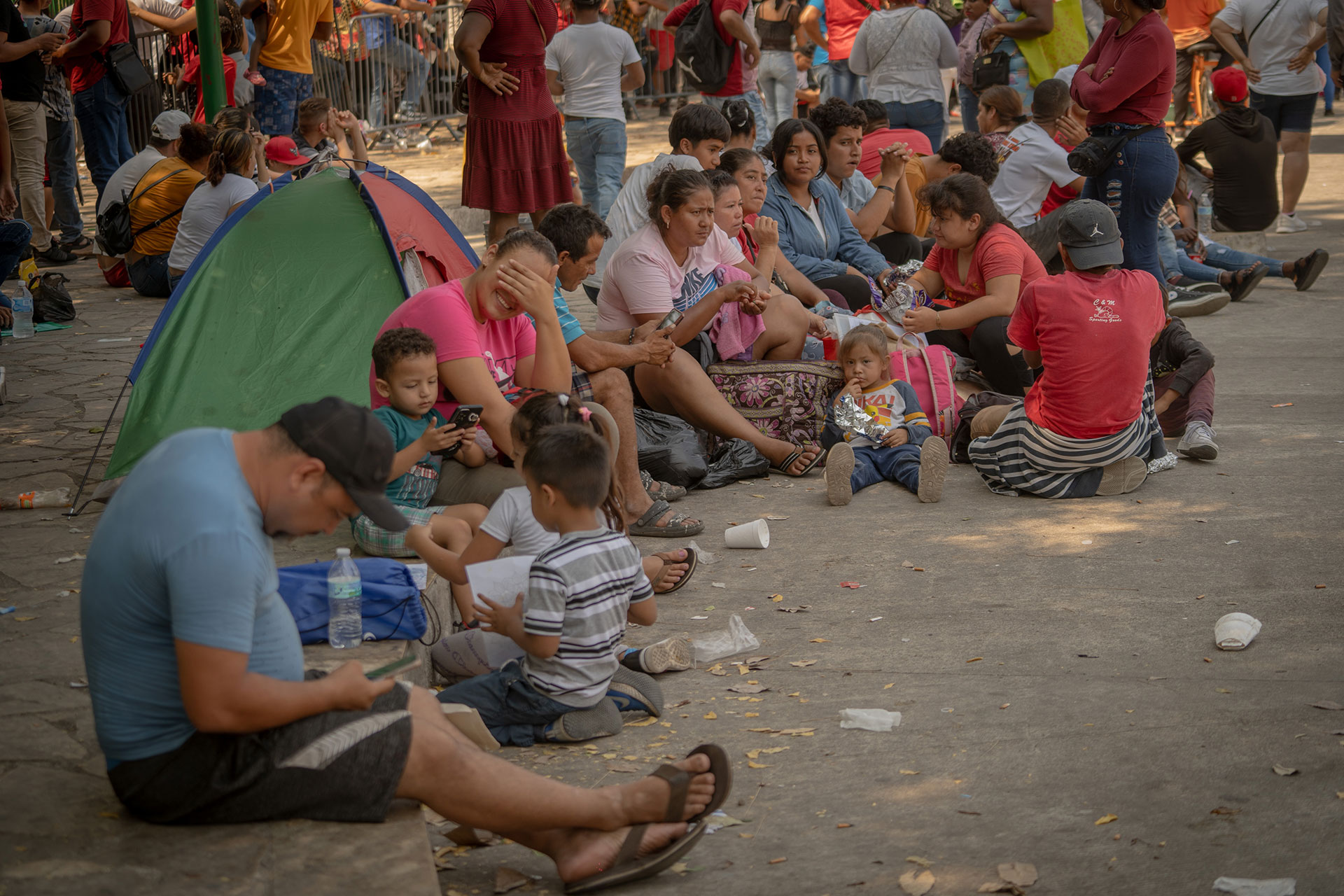
Dozens of migrants from different countries wait their turn for service at the Mexican Commission for Refugee Aid in Tapachula, Chiapas State, Mexico.
A chatbot designed especially for migrants
To design a chatbot that truly meets the needs of this migrant community, Ipas followed a user-centered design process that included direct input from migrants themselves—as well as from a broad network of civil society organizations, government institutions and international entities that work directly with migrants.
*via GlobalGiving
What resulted is “Te Acompaño,” an innovative web-based platform built to expand access to information, services and support for those seeking abortion and other sexual and reproductive health care along the main migration routes in Mexico. Te Acompaño, which means “I accompany you” in Spanish, leverages artificial intelligence to deliver personalized, on-demand information 24/7 through a chatbot that provides users with a conversational experience. Migrants can access the chatbot for free via mobile phone or computer, with their privacy and anonymity always maintained.
Since launching in Sept. 2023, the chatbot has recorded 9,712 interactions, including 5,841 clicks on referral resources like a map of where to buy abortion pills, a directory of organizations that provide abortion accompaniment (support for people self-managing an abortion with pills), and public services for addressing violence.
*This data updated September 2024.
chatbot interactions
clicks on referral resources
Users and local experts agree:
Te Acompaño chatbot is ‘a very powerful tool’
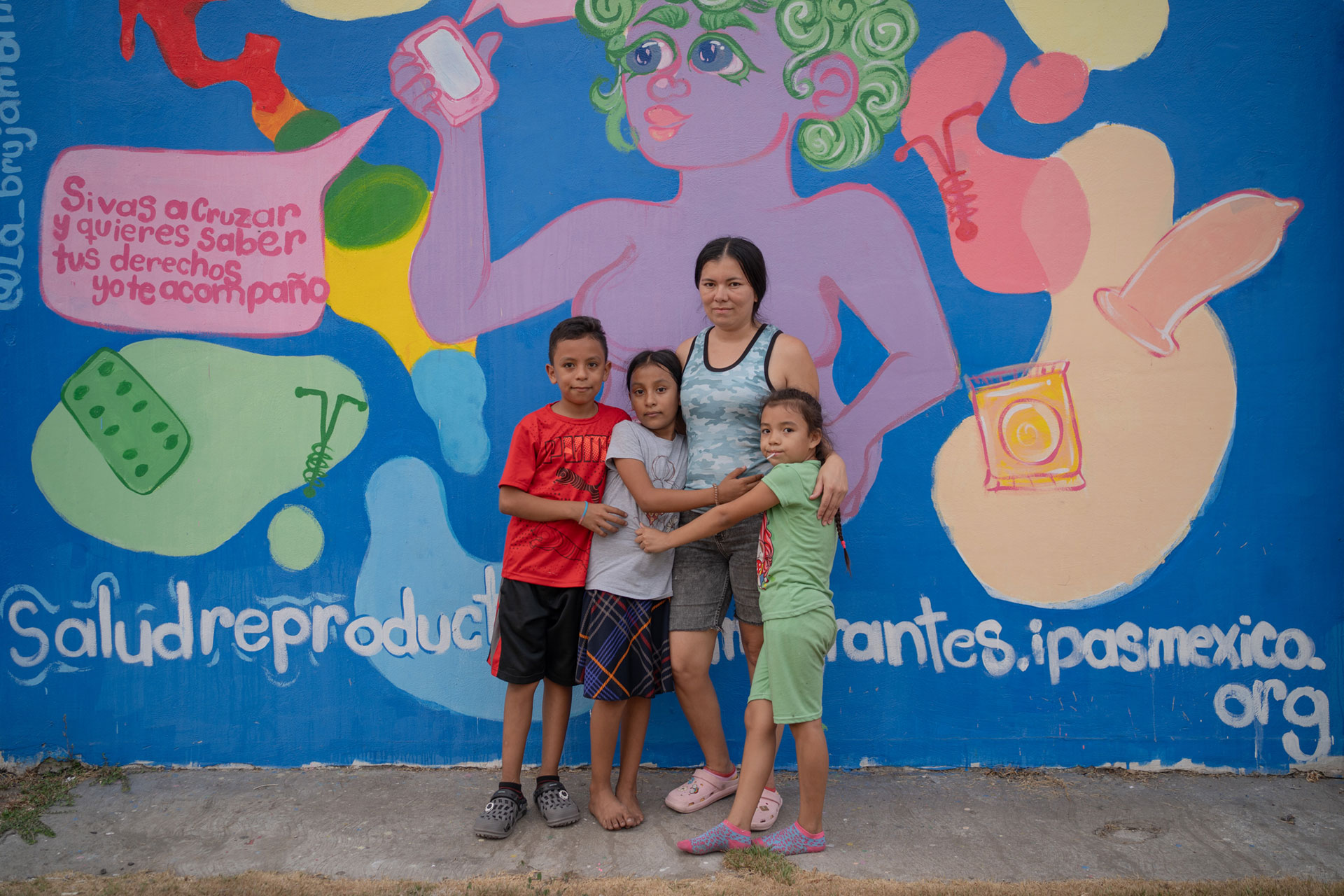
Whenever one needs support, one can access it"
“Whenever one needs support, one can access it,” says Saraí Gomez when describing the chatbot. Gomez, a migrant from Honduras, is shown in the photo above with her family. They’re standing in front of a street mural promoting Te Acompaño and the types of reproductive health information it provides. Gomez fled threats of gang violence, leaving her home in the middle of the night in search of safety for her children.
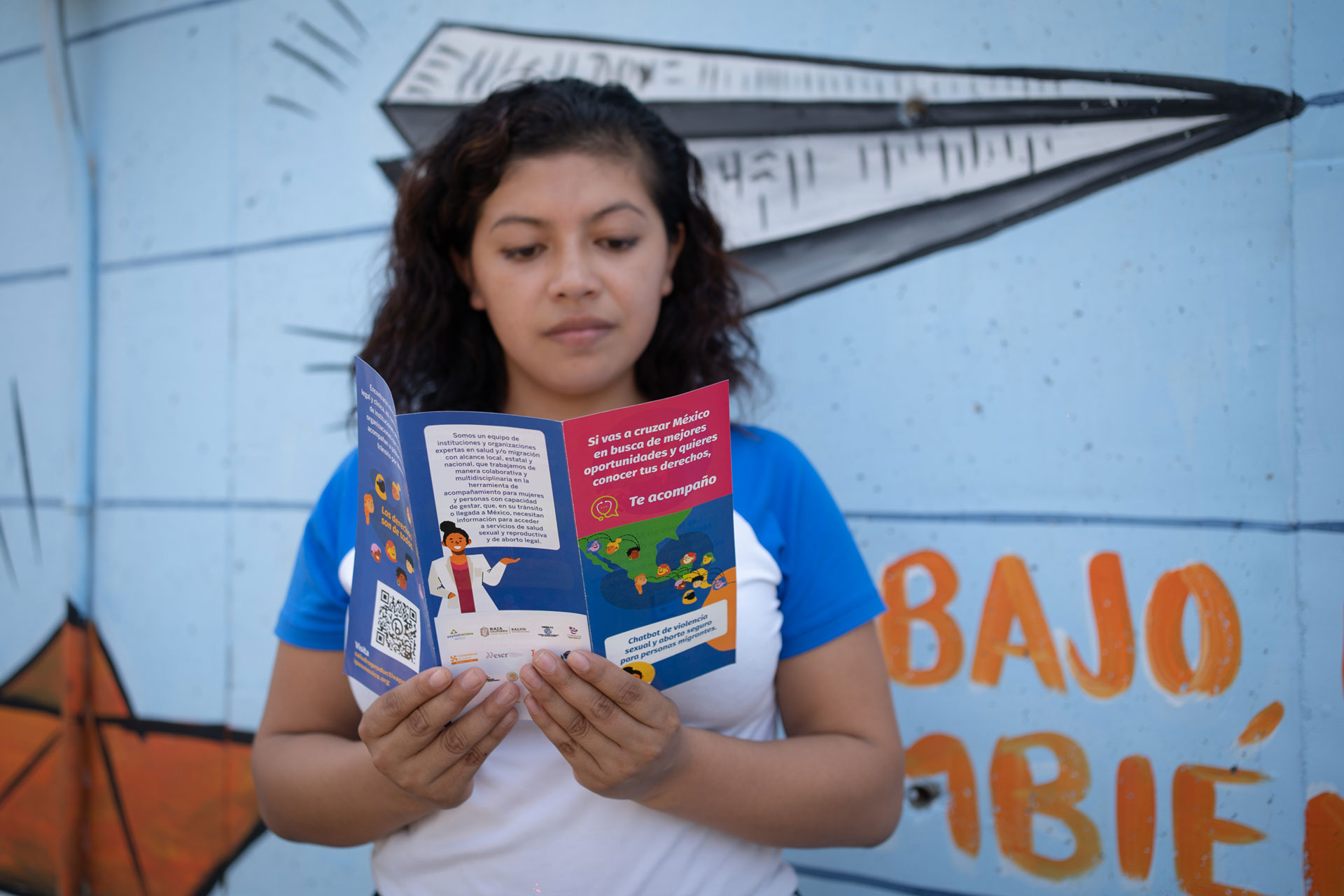
Elizabeth Martínez, a migrant from Honduras, reads a brochure about the Te Acompaño chatbot and the resources it offers. She learned of the chatbot from Ipas and our local partner Una Mano Amiga (A Helping Hand). “It’s a very good, user-friendly, automated tool where they listen to you and where you are free to express yourself—and they will provide you with the care you require and deserve at that time,” she says.
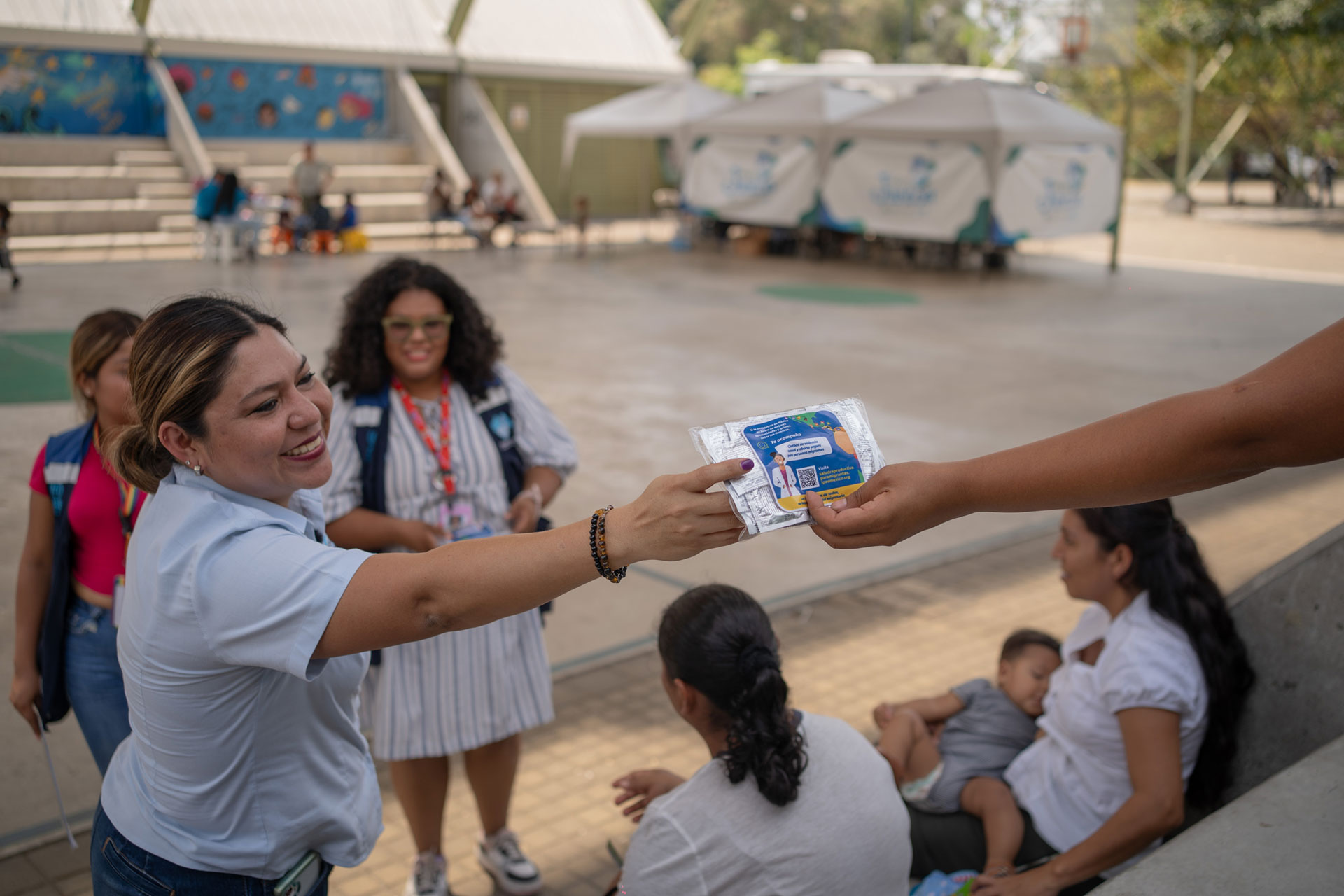
Yadira Esmeralda Guerrero Castro with the Tapachula-based group Una Mano Amiga (A Helping Hand in the Fight Against AIDS) provides an education session for migrants in which she shares the Te Acompaño chatbot. A key Ipas partner, Una Mano Amiga has worked to support migrants in Tapachula for decades.
Guerrero Castro has watched the migrant crisis become more complicated and acute in recent years, including the violence migrants face: “from violence in their country of origin, to violence in transit, to violence in their point of destination,” she says. “That is why we at A Helping Hand are always raising the issue that people’s sexual and reproductive health must be present [in programs to support migrants].”
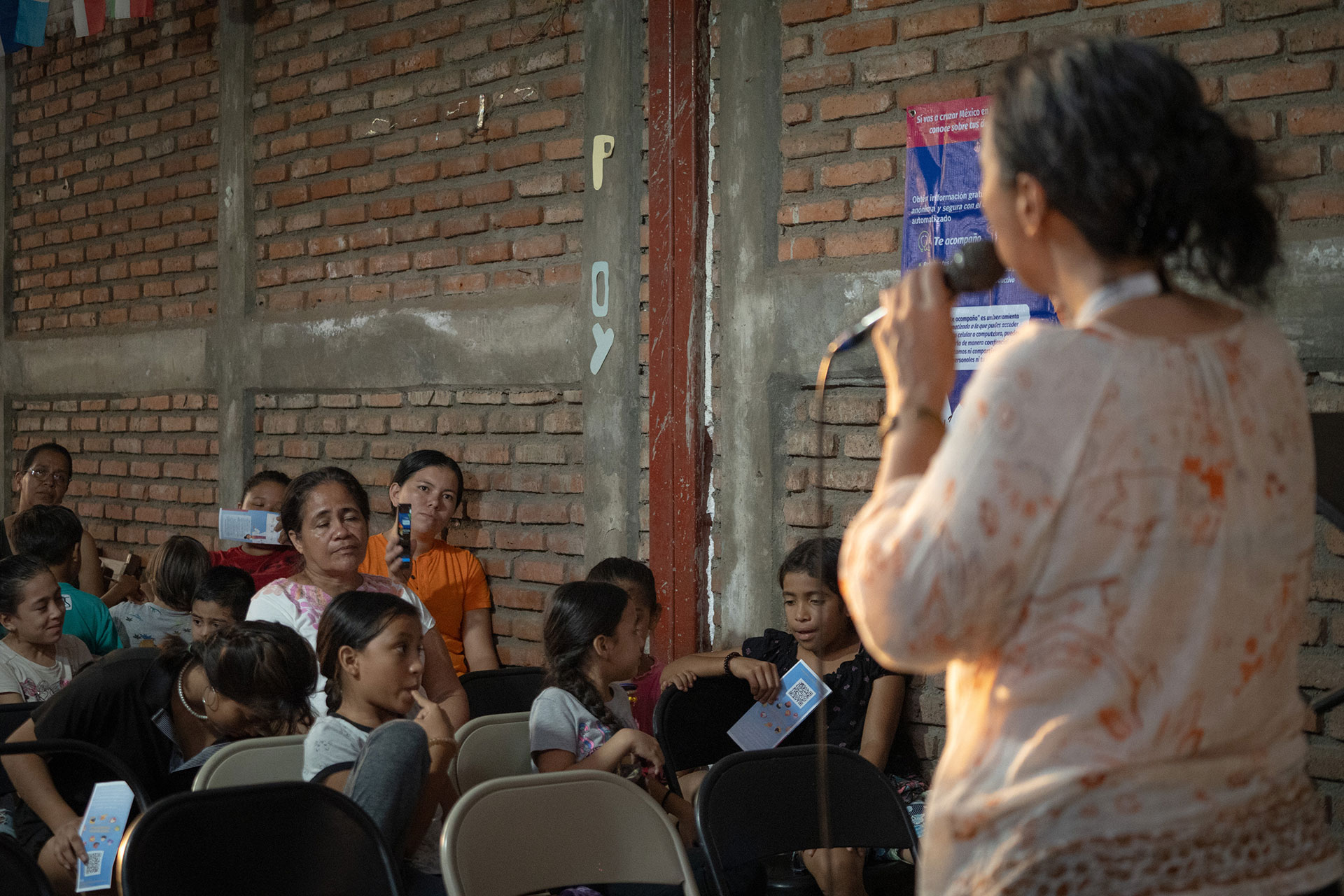
Fabiola Diaz Rovelo with Chiapas Foundation for Migrant Women (CHIMUMI) says she’s motivated by the great need for sexual and reproductive health care she sees in the migrant community in southern Mexico.
“When the caravans arrived, both the municipal and federal governments focused on addressing the need for food, the need for granting visas, and if there were pregnant women, this went unaddressed and was even ignored,” she says. “Locally we noticed that contraception … pregnancies or abortions were not priorities … it was an issue that was overlooked and to this date it is still overlooked.”
Luz María Salinas, who migrated from El Salvador fleeing terrible domestic violence, says she’s gained valuable information from the Te Acompaño chatbot.
“Using it has helped me a lot because now I am aware of many things I didn’t even know, for example that I can get an abortion and that it’s safe, it’s confidential,” she says. “I realize that now, as women, we have rights and are heard. We no longer depend on anyone or on a man to make our own decisions.”
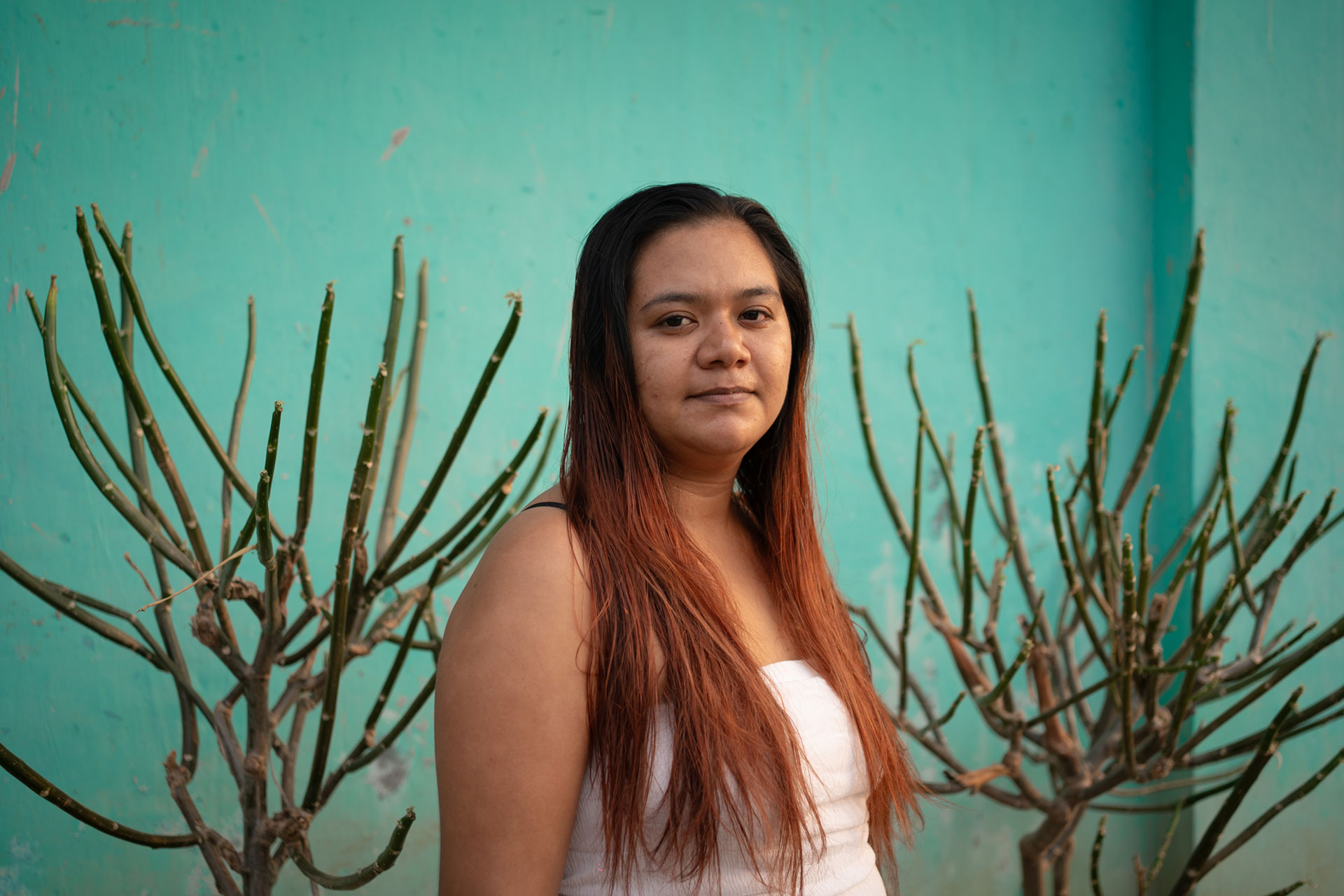

Street murals like this one in Tapachula, Mexico, commissioned by Ipas and our partners, are designed to ensure migrants learn of Te Acompaño and the unique information and resources it can provide them. Murals are strategically located in places frequented by migrants, such as currency exchange offices and migration support services.
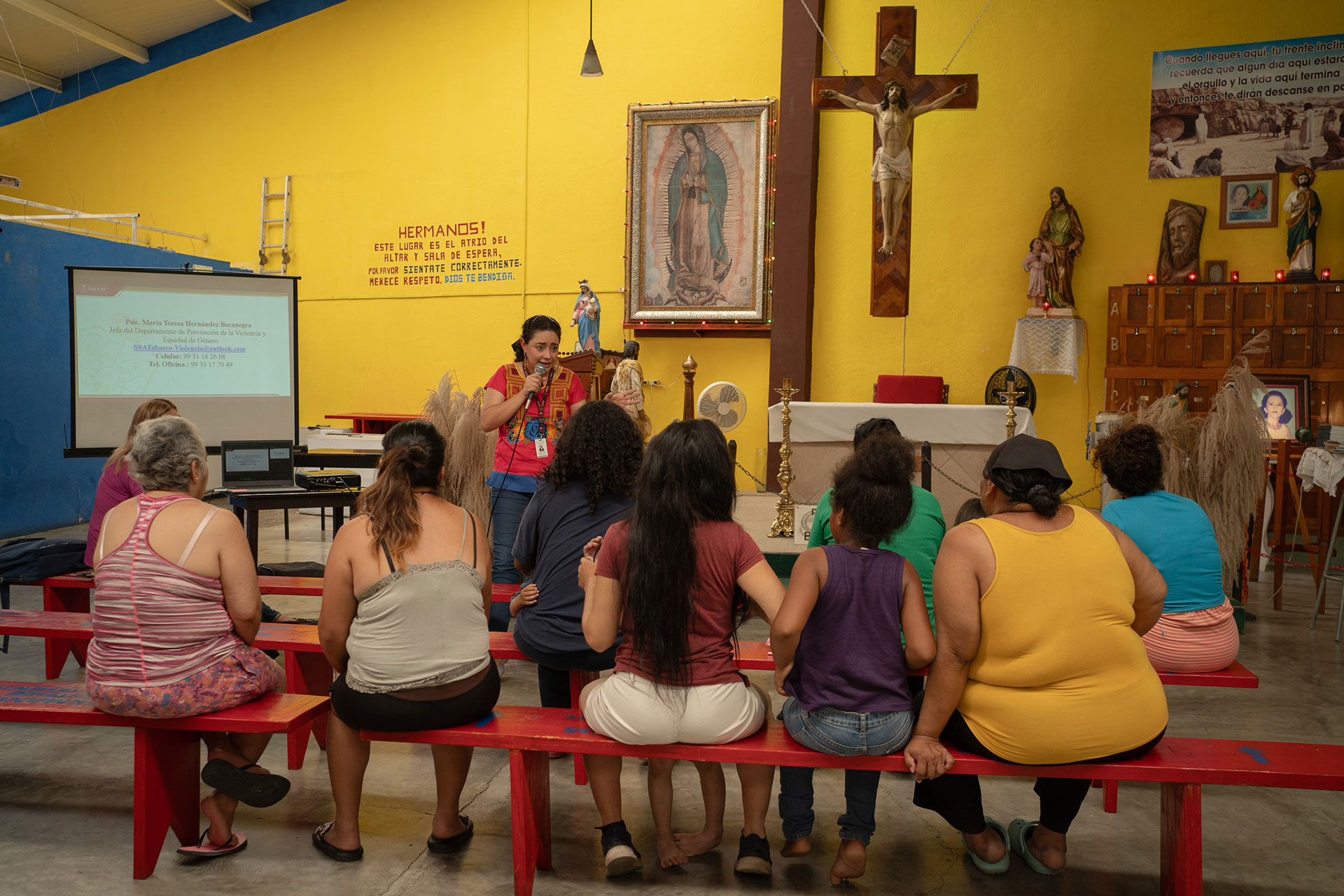
“I think the chatbot has enabled migrant women to know what to do and where to go. In the case of rape, what to do. Where to go if in need of an [abortion] or where you can find abortion services,” says María Teresa Hernández Bocanegra (above), head of the Department of Violence Prevention and Gender Equity within Tabasco State’s Ministry of Health. In the above photo, she helps lead an education session for migrants at Oasis de Paz del Espíritu Santo—a shelter for migrants in Villahermosa, Mexico.
“Along the way they also share this information with those who are from other countries … I heard a woman from Ecuador saying ‘no, this is not legalized in my country, but you are now in Mexico—safe abortion in Mexico is legal and these are your rights,’” Hernández Bocanegra says.
“It’s motivating to me that all women, regardless of our nationality, could access our right to decide—that girls, adolescents and women could opt for wanted motherhood,” she adds. “It also motivates me to be able to create or promote health spaces where there is respect for all.”
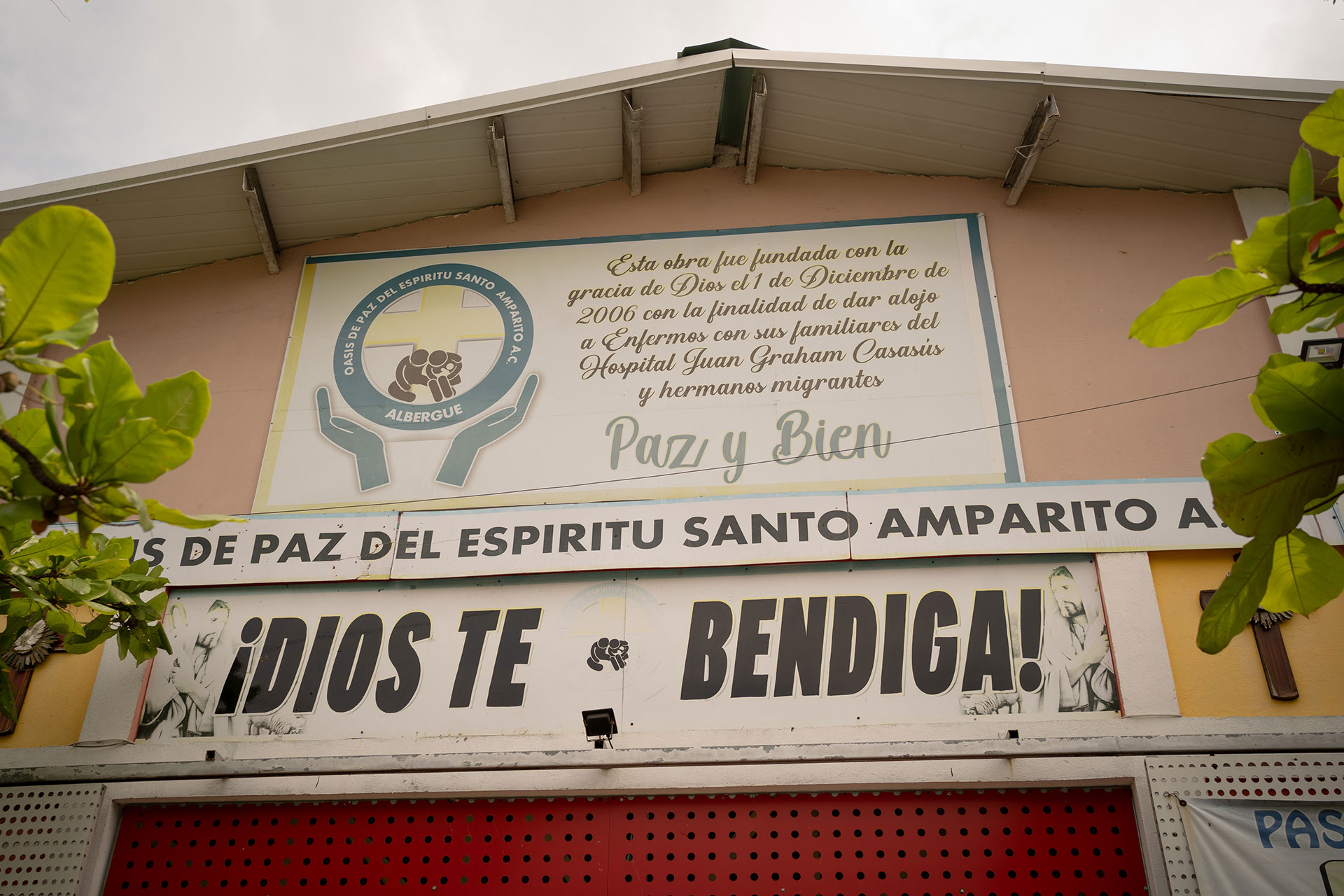
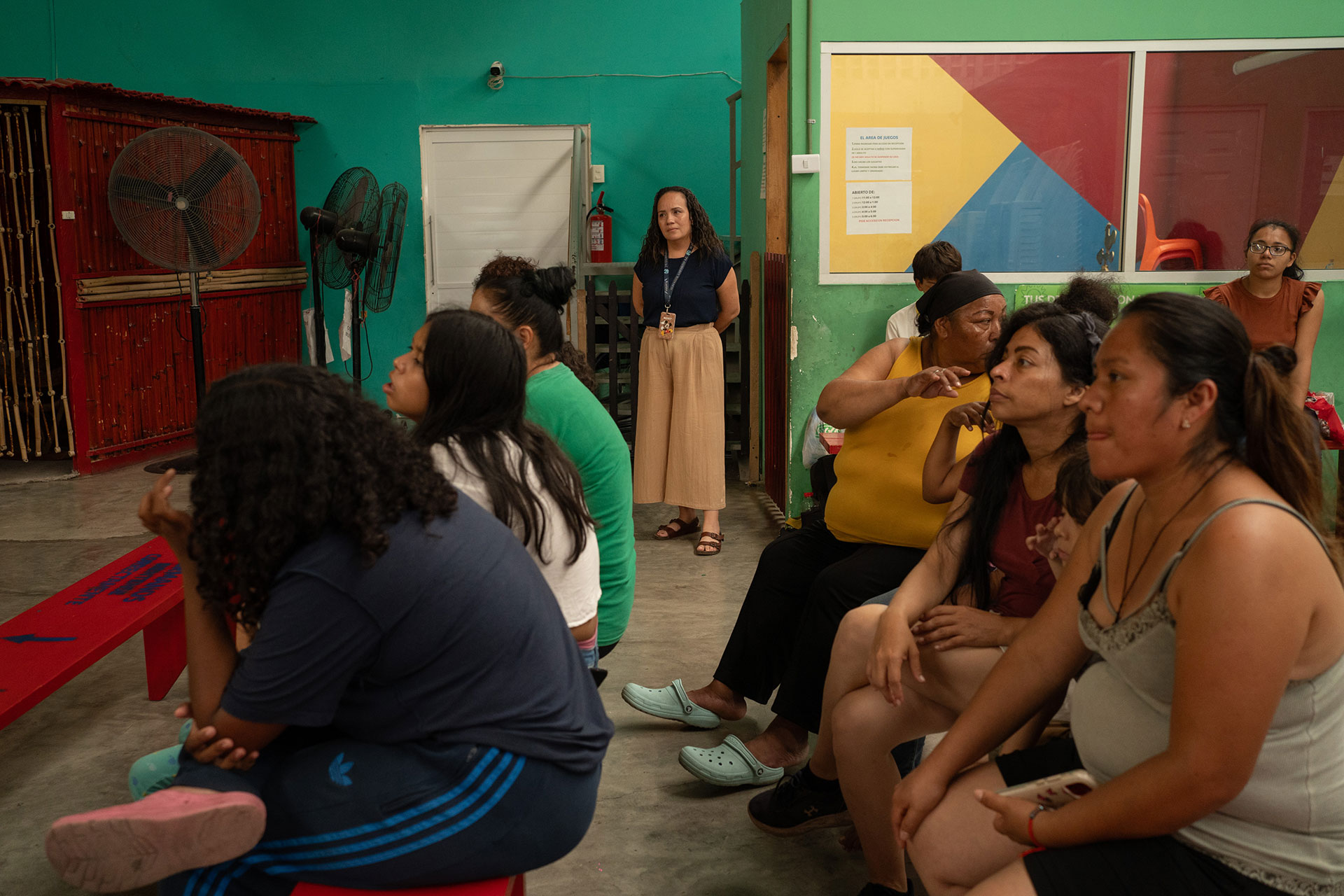
Karina del Carmen Vidal Baeza, general coordinator at Oasis de Paz del Espíritu Santo—a shelter for migrants in Villahermosa, Mexico—shares information about Te Acompaño with the migrant women she serves.
“It has been a tool that’s given them confidence in knowing that, in this new country they’re in, they have somewhere to turn,” she says. “For them, it’s a relief because they know they are more vulnerable, that the chatbot provides them with this tool of information … it’s a relief [to go to a] health center knowing that here they will guide you with the appropriate steps for issues as delicate as talking about abuse. The chatbot has given them that confidence.”
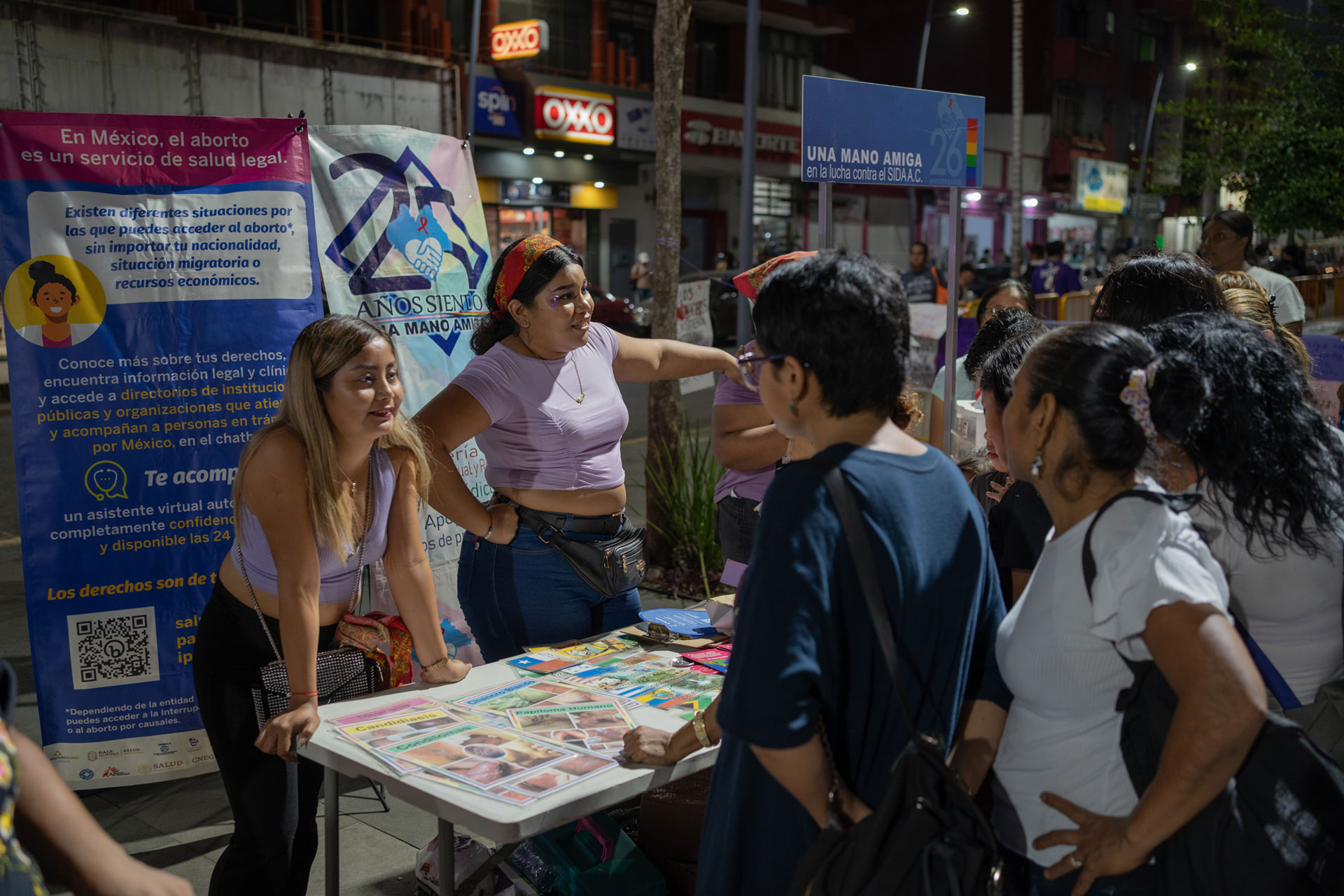
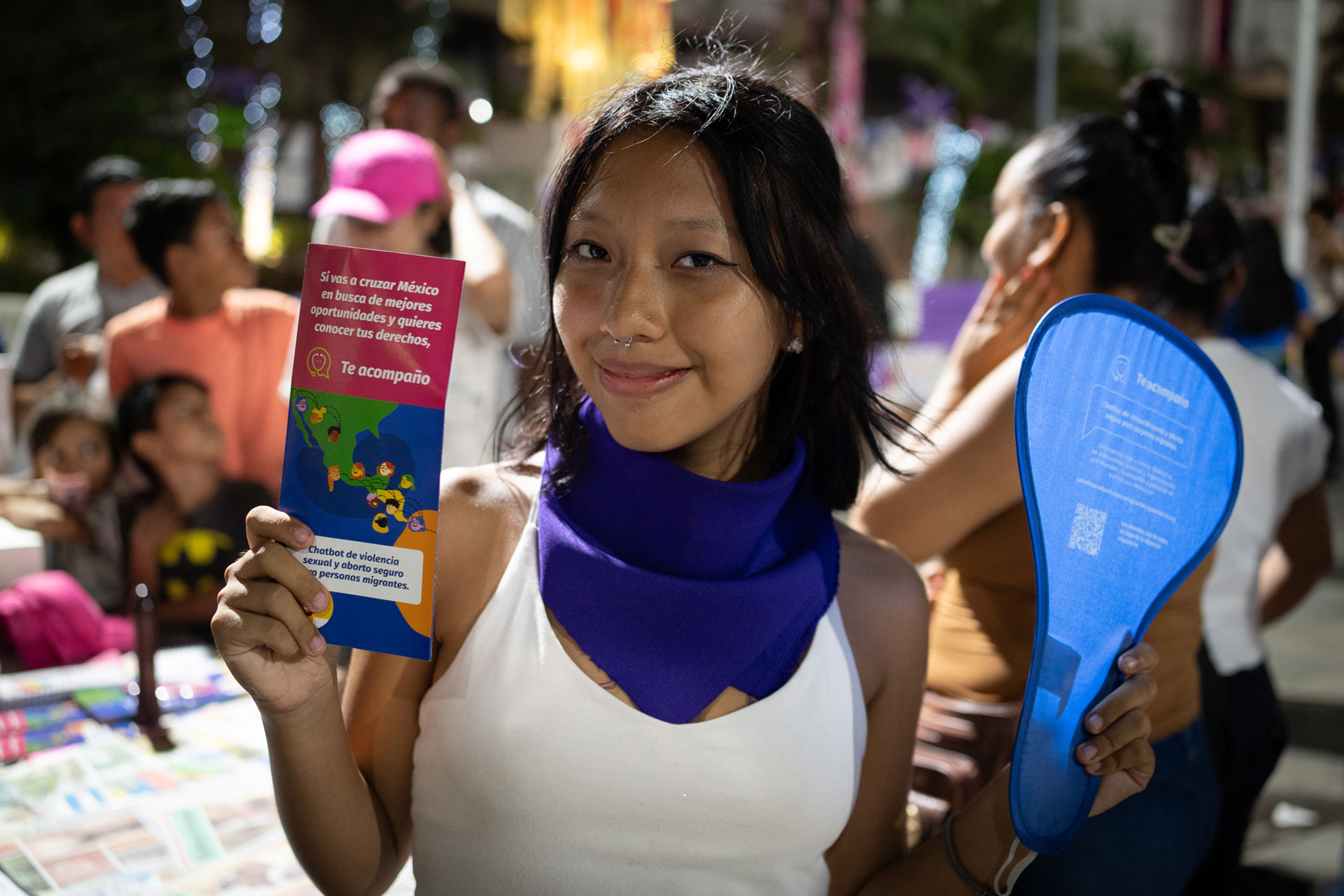
The Una Mano Amiga (A Helping Hand) team shares information on sexual and reproductive health and the Te Acompaño chatbot during a march in Tapachula, Mexico, for International Women’s Day.
“The chatbot has been a very powerful tool for [migrant women],” says Fabiola Diaz Rovelo with Chiapas Foundation for Migrant Women (CHIMUMI). “It has made a huge difference because, for example on the topic of abortion, they have requested counseling but have knocked on the wrong doors and have faced biases.”
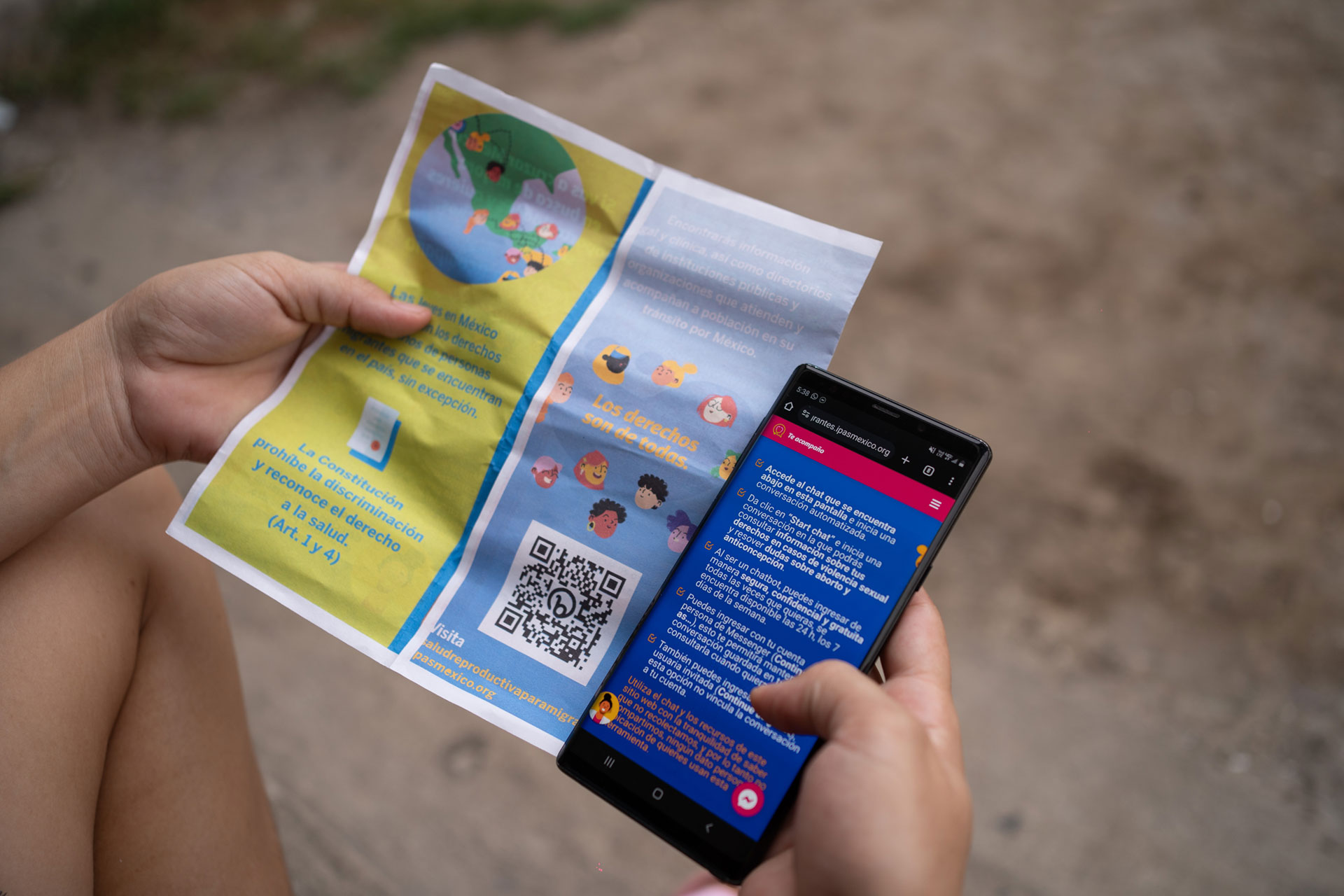
The chatbot has had a positive impact on the women we [support] here in Tapachula."
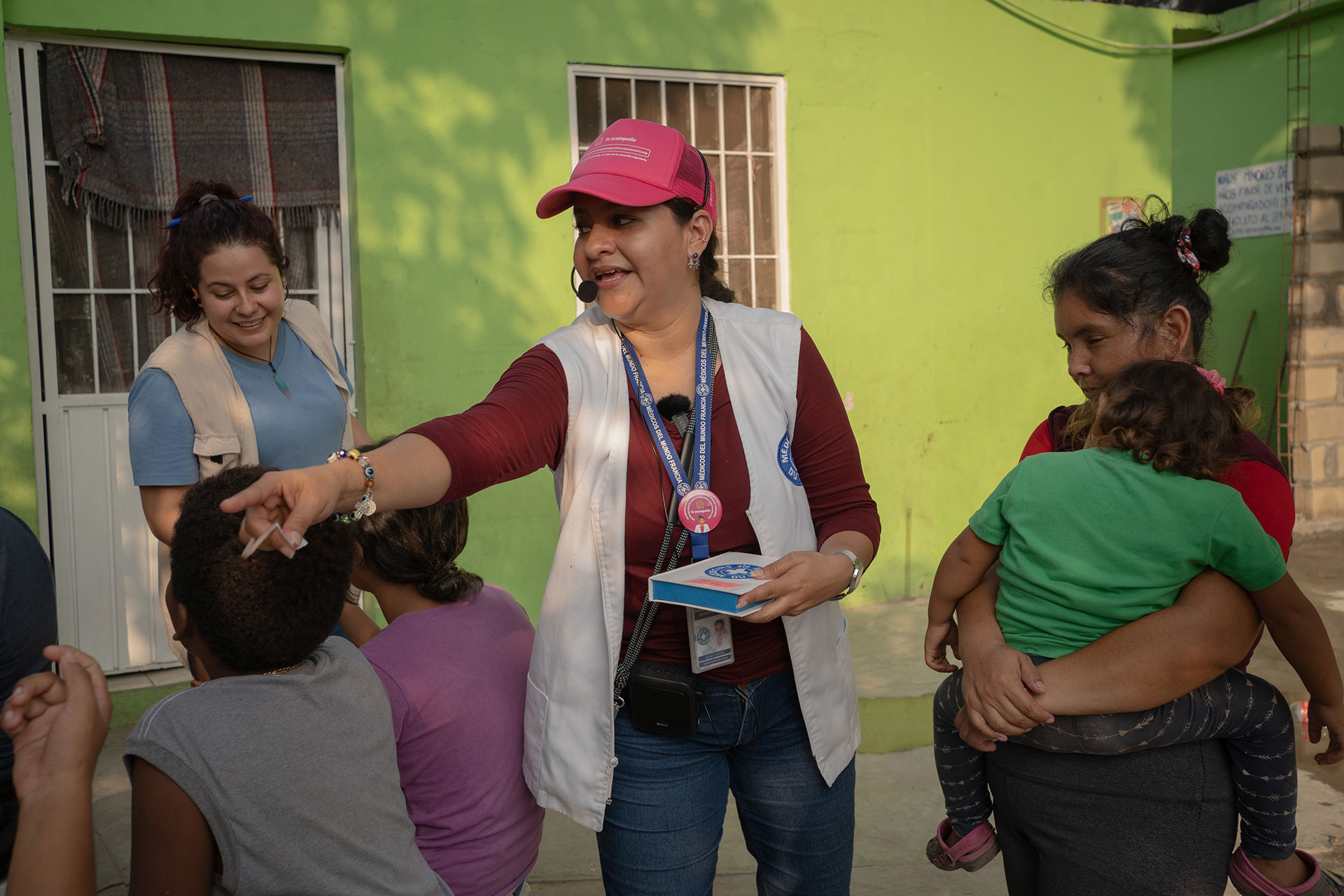
Lourdes Faviel with Medicos del Mundo (Doctors of the World) shows promotional materials for Te Acompaño during a health education session for migrants. The promotional materials make it easy for users to get online and start asking their questions.
Medicos del Mundo has been a key Ipas partner in developing the chatbot and sharing it with people in need of reproductive health information and care.
Faviel sees firsthand the barriers Te Acompaño is designed to address: “[Migrants] don’t know what health facilities they can approach to request care because they don’t know their rights in Mexican territory,” she says.
“The chatbot has had a positive impact on the women we [support] here in Tapachula,” says Faviel. “They feel safe using a tool where they are not asked for their personal data, where the confidentiality part is taken care of, and I think that gives them peace of mind because they can access information that is safe, that is reliable.”
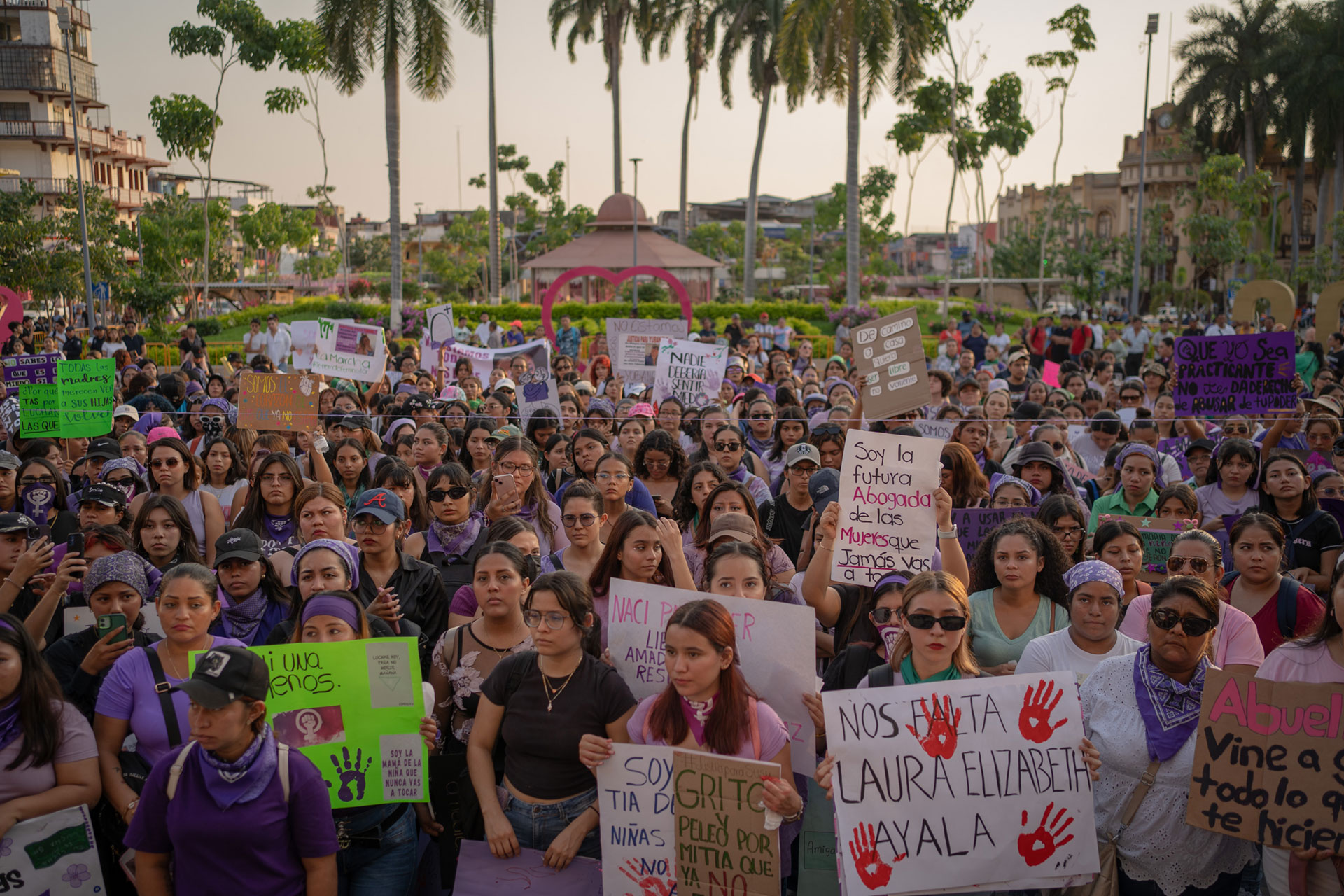
Hundreds of women gathered in the central plaza at the end of the International Women’s Day march in Tapachula, Mexico on March 8, 2024. Ipas’s partners promoted the Te Acompaño chatbot at the march.

ONE WOMAN’S STORY
For Elizabeth Martínez and many migrants like her, a chatbot is helping them reclaim bodily autonomy
A diverse network of partners transforms reproductive health support for migrants
Ipas relies on local partners in everything we do. Their expertise and deep knowledge of the local context is essential to our success. And we’ve found that the surest way to build sustainable abortion rights and access anywhere is with partners in all sectors of society.
Building on what we know has worked around the world, Ipas Latin America and the Caribbean built a far-reaching network of partners for this project, including federal, state, and local organizations and institutions. These are just some of the many positive impacts of this partner network:
Robust support for women: As these partners collaborated to build and promote Te Acompaño, they were also building a robust support network for migrant women—an important milestone in strategic partnerships for migrant rights and health.
Widespread promotion of Te Acompaño: Our diverse partners have been able to share the chatbot widely in spaces like shelters, support centers, collectives, fairs, and strategic groups and organizations focused on the human rights of migrants.
Training and support for health workers: The design and sharing of Te Acompaño have also involved training and support for health workers so they can use the chatbot with clients and provide the services they need. Our trainings help health workers understand their important role in ensuring access to reproductive health care—and dispel myths on stigmatized topics like abortion and sexual violence. Some of our partners even grew into champions for abortion rights in the process.
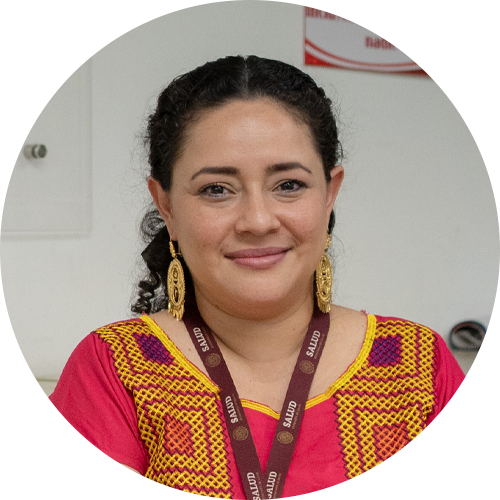
“Personnel can have [Te Acompaño] available to guide them on the rights of migrant women, girls, and adolescents in [sexual and reproductive health and rights] issues. It’s important because there are still many doubts [among health workers] in terms of safe abortion care, … cases of sexual violence, and much more in terms of the migrant population.”
María Teresa Hernández Bocanegra, Tabasco State Ministry of Health, who participated in training health-care personnel on how to use the chatbot
Strength in numbers:
5 key partners who helped us build and share Te Acompaño
When you support Ipas, you support our local partners around the world. Here five of our key partners in this project share how their organizations’ partnership with Ipas created real-world impact.
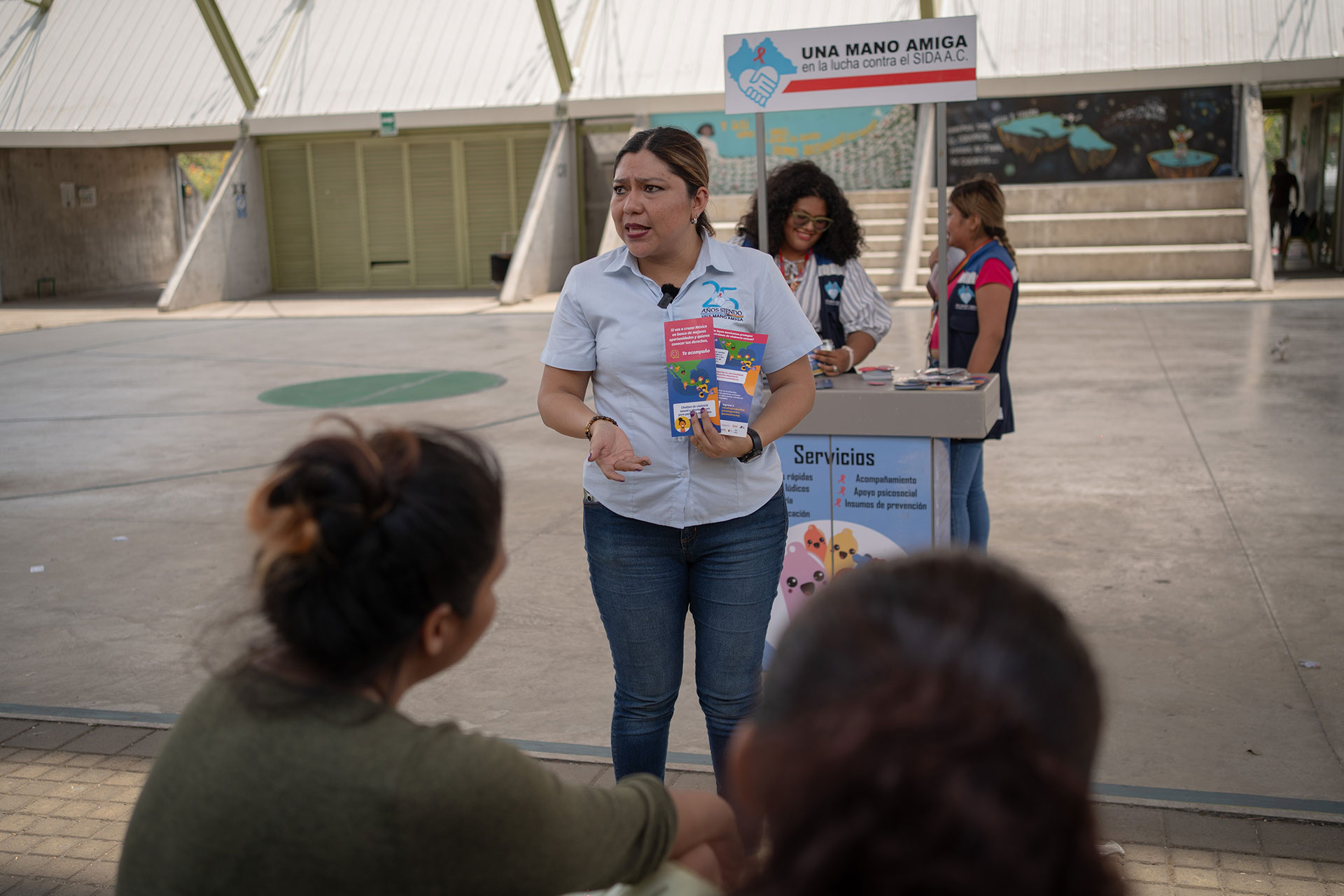
Yadira Esmeralda Guerrero Castro
Operational Coordinator, Una Mano Amiga (A Helping Hand in the Fight Against AIDS)
Involvement:
- Te Acompaño design team
- Migrant education on sexual and reproductive health and rights
- Promotion of Te Acompaño to migrant community
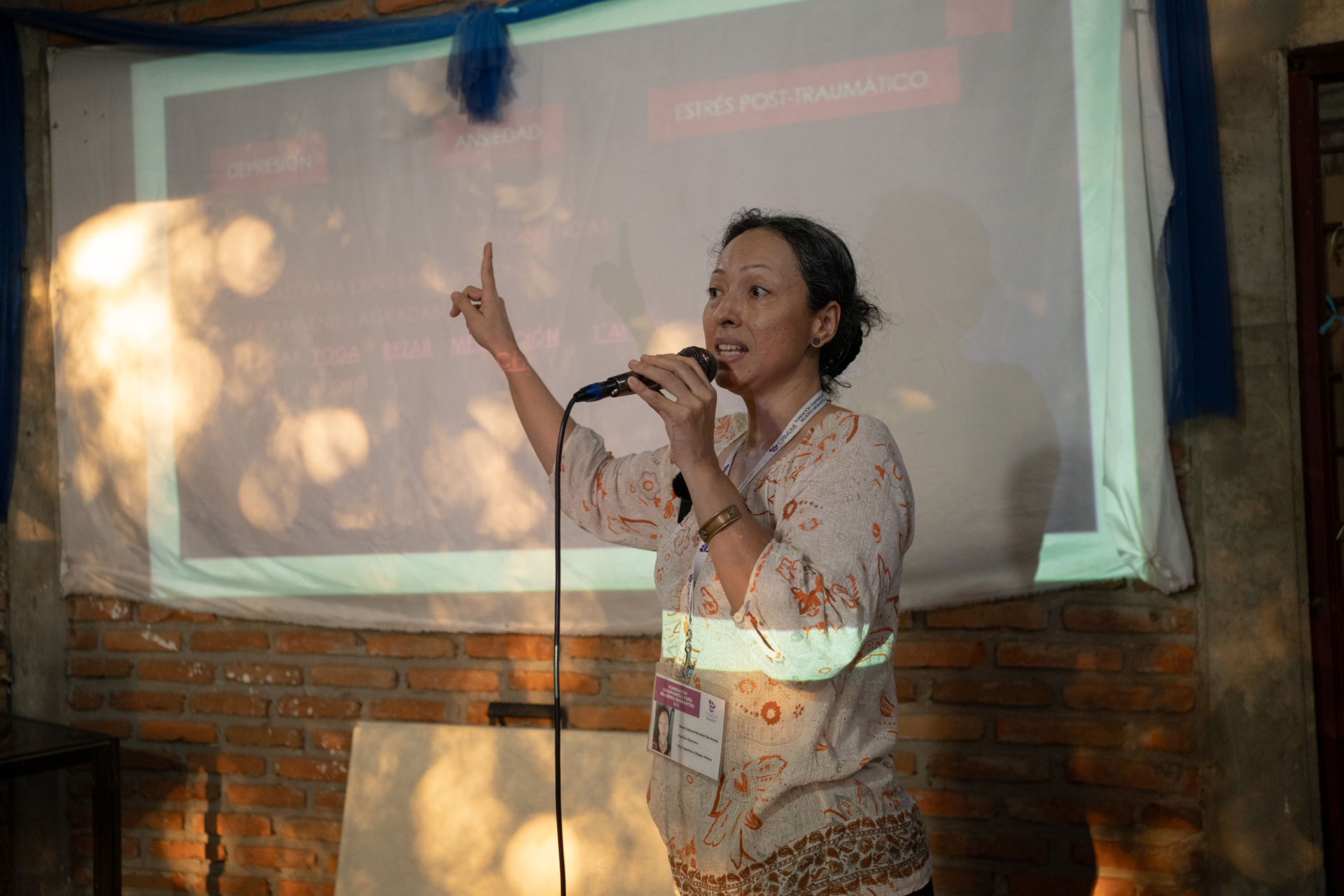
Fabiola Diaz Rovelo
Chiapas Foundation for Migrant Women (CHIMUMI)
Involvement:
- Te Acompaño design team
- Migrant education on sexual and reproductive health and rights
- Promotion of Te Acompaño to migrant community
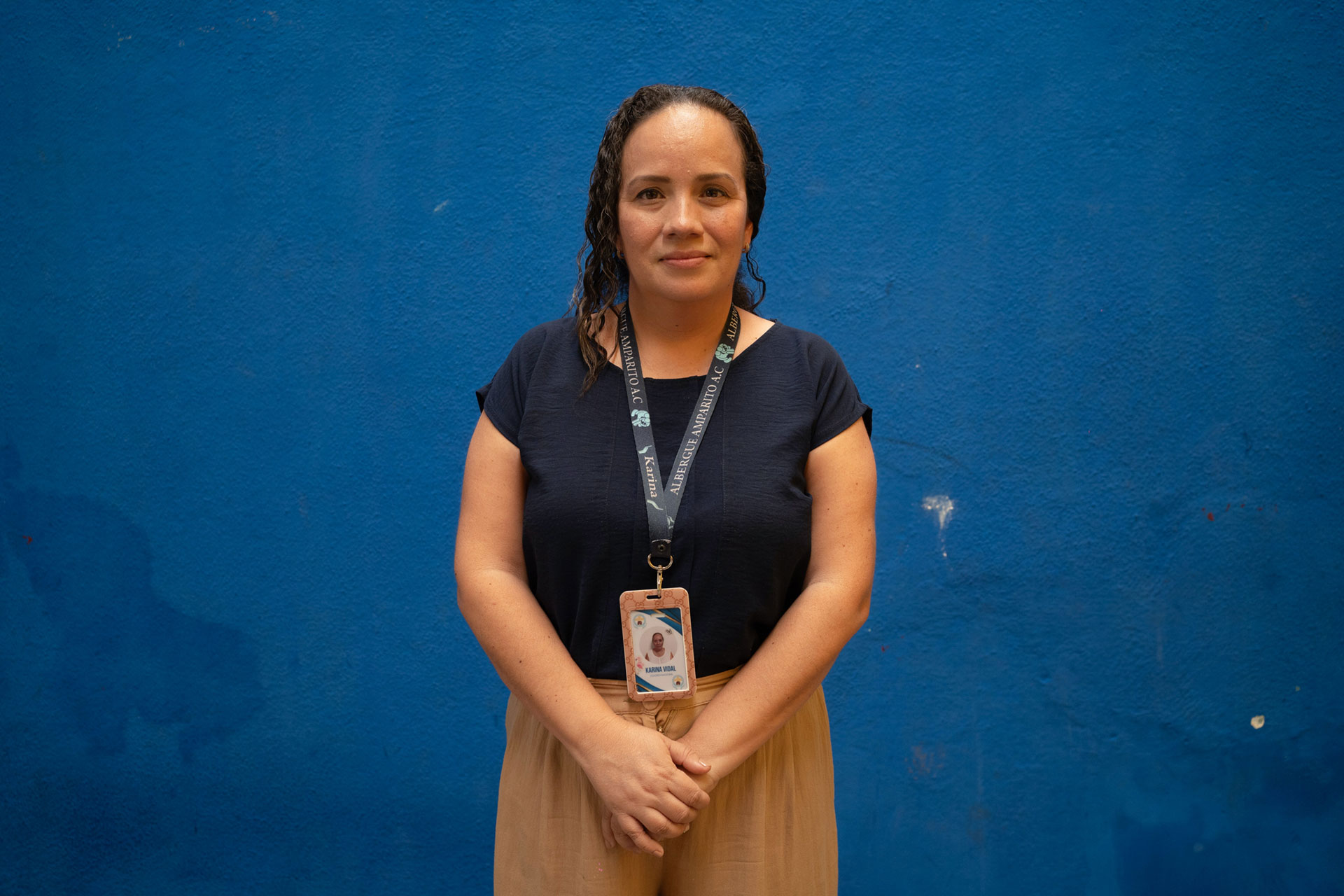
Karina del Carmen Vidal Baeza
General Coordinator, Oasis de Paz del Espíritu Santo (a shelter for migrants in the city of Villahermosa in Tabasco State)
Involvement:
- Te Acompaño design team
- Migrant education on sexual and reproductive health and rights
- Promotion of Te Acompaño to migrant community
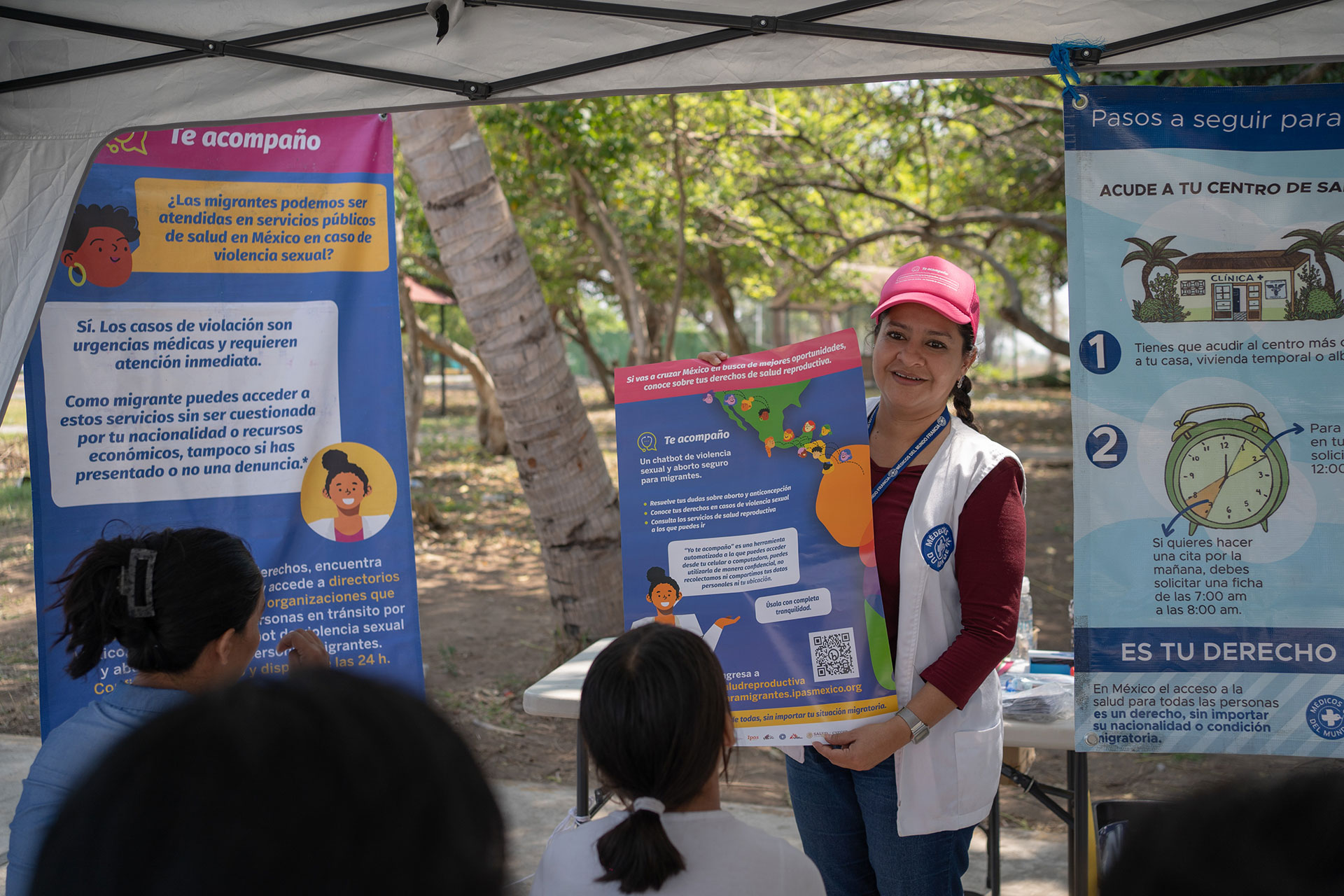
Lourdes Faviel
Leads the health team for Medicos del Mundo (Doctors of the World, France, in Mexico)
Involvement:
- Te Acompaño design team
- Provides reproductive health services for migrants (including referrals from chatbot)
- Promotion of Te Acompaño to clients and migrant community
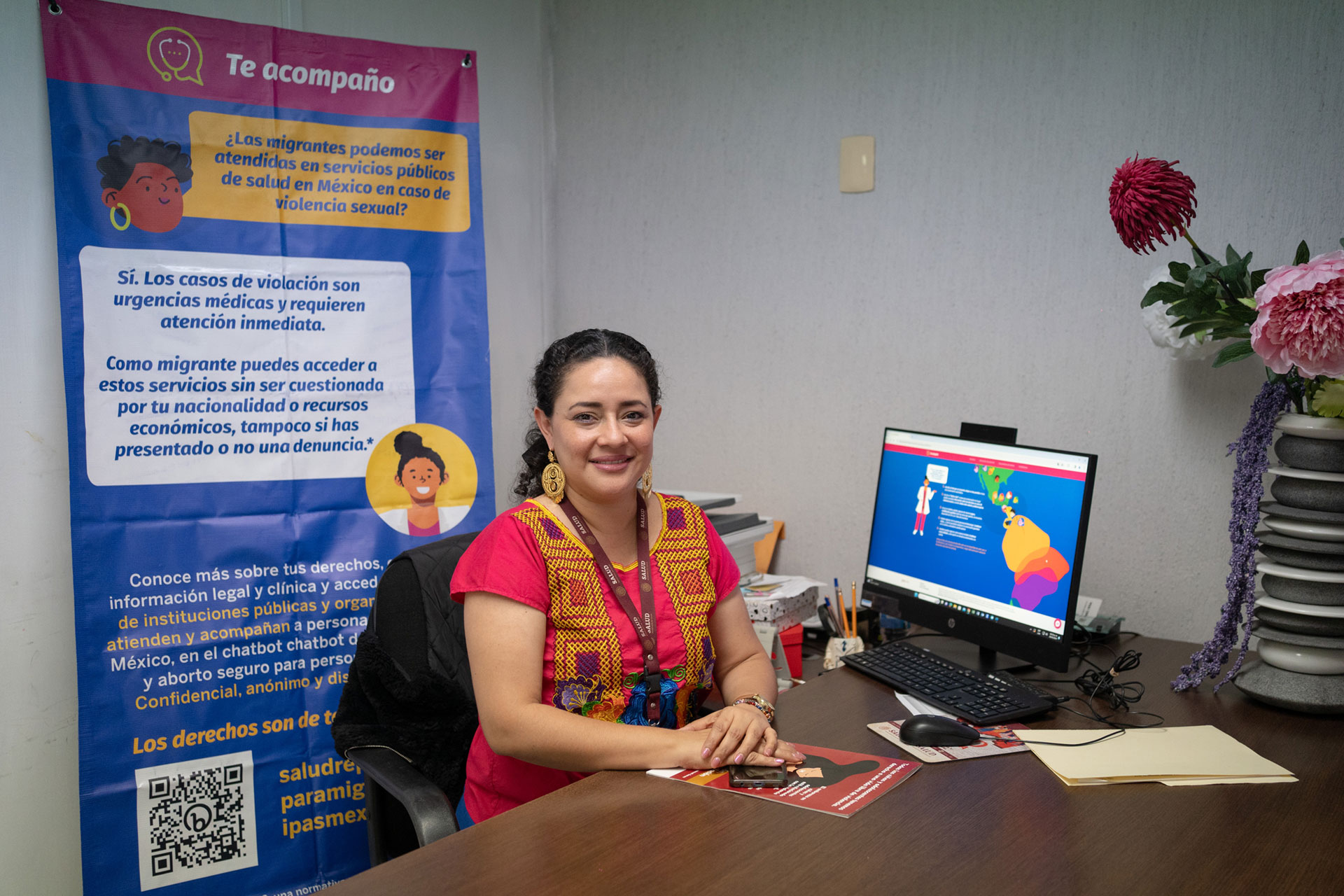
María Teresa Hernández Bocanegra
Head of the Department of Violence Prevention and Gender Equity, Tabasco State Ministry of Health
Involvement:
- Te Acompaño design team
- Ensures provision of reproductive health services for migrants in public health centers (including referrals from chatbot)
- Train health workers on abortion care and migrant sexual and reproductive health and rights
- Migrant education on sexual and reproductive health and rights
- Promotion of Te Acompaño to migrant community
Help us grow our impact
Te Acompaño is poised to transform reproductive health support for migrants throughout Mexico. Since launching in Sept. 2023, the website and chatbot have already proven effective at reaching migrants with essential health information and connecting them with care—so far with a focus on the states of Chiapas, Baja California, Tabasco and Mexico City.
Now we’re ready to expand our coverage to reach more people. You can partner with us to make this happen.
*via GlobalGiving
With your support, we will:
- Expand coverage to new states along key migration routes.
- Add new language options for migrants who don’t speak Spanish.
- Add audio versions of key information for migrants with visual impairments and low literacy.
- Amplify awareness of the chatbot through local outreach and digital campaigns that will reach thousands.
Together, we’ll ensure migrant women can access reproductive health care—and have the tools to make informed, safe decisions—no matter where their journey takes them.
This project is supported by the OPTions Initiative.
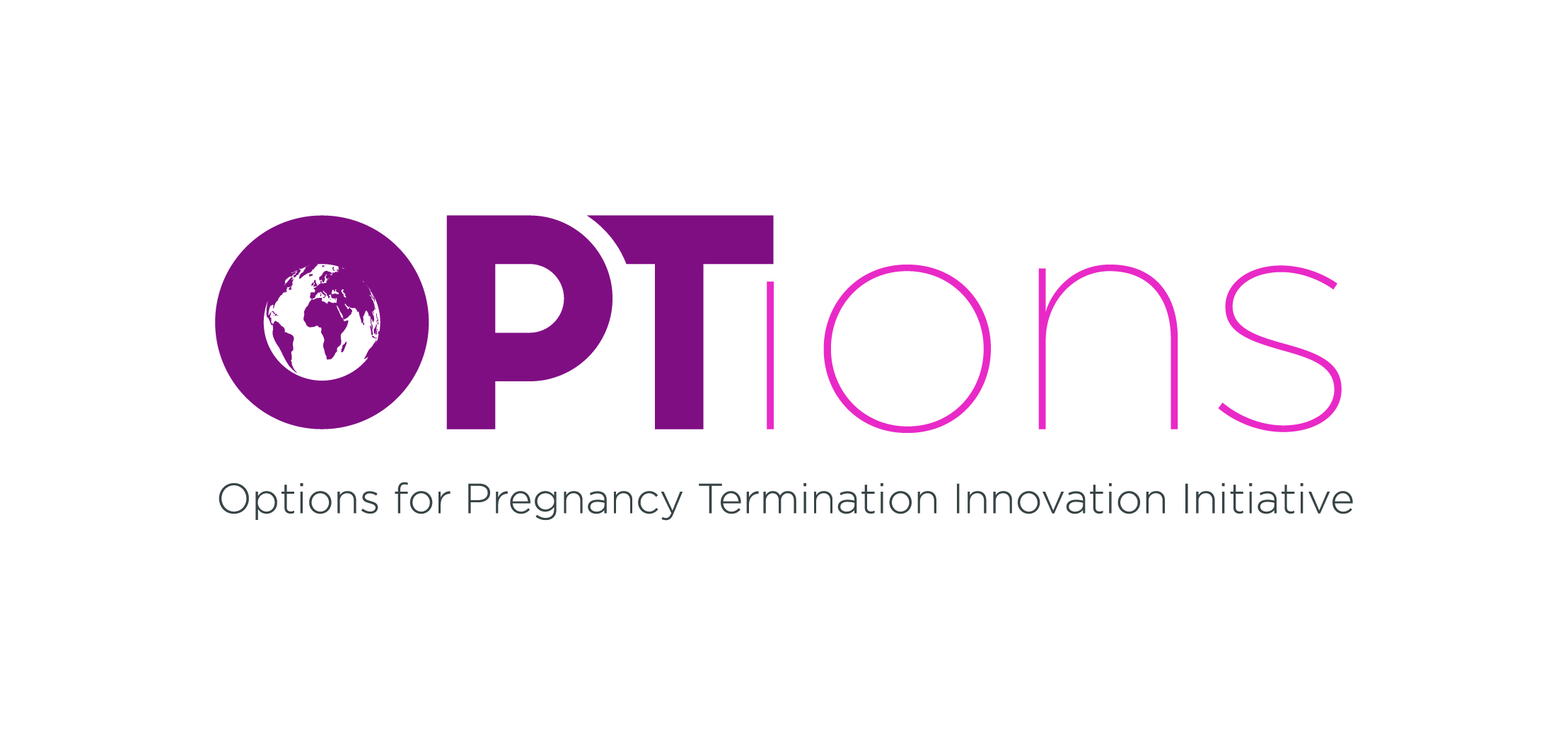
About the photography
Victoria Razo is a freelance photographer based between Mexico City and Veracruz, Mexico. Her work focuses on human rights, gender, migration, and environmental stories.
Ipas is committed to ethical communications and image use and to upholding people’s dignity in the work we do. We partner with local photographers who understand their communities and who share our values.
Every crisis is different. Our varied solutions recognize that.
Through a variety of different programs and approaches, we’re proving that reproductive health care can be made accessible during an acute crisis and in the years that follow.
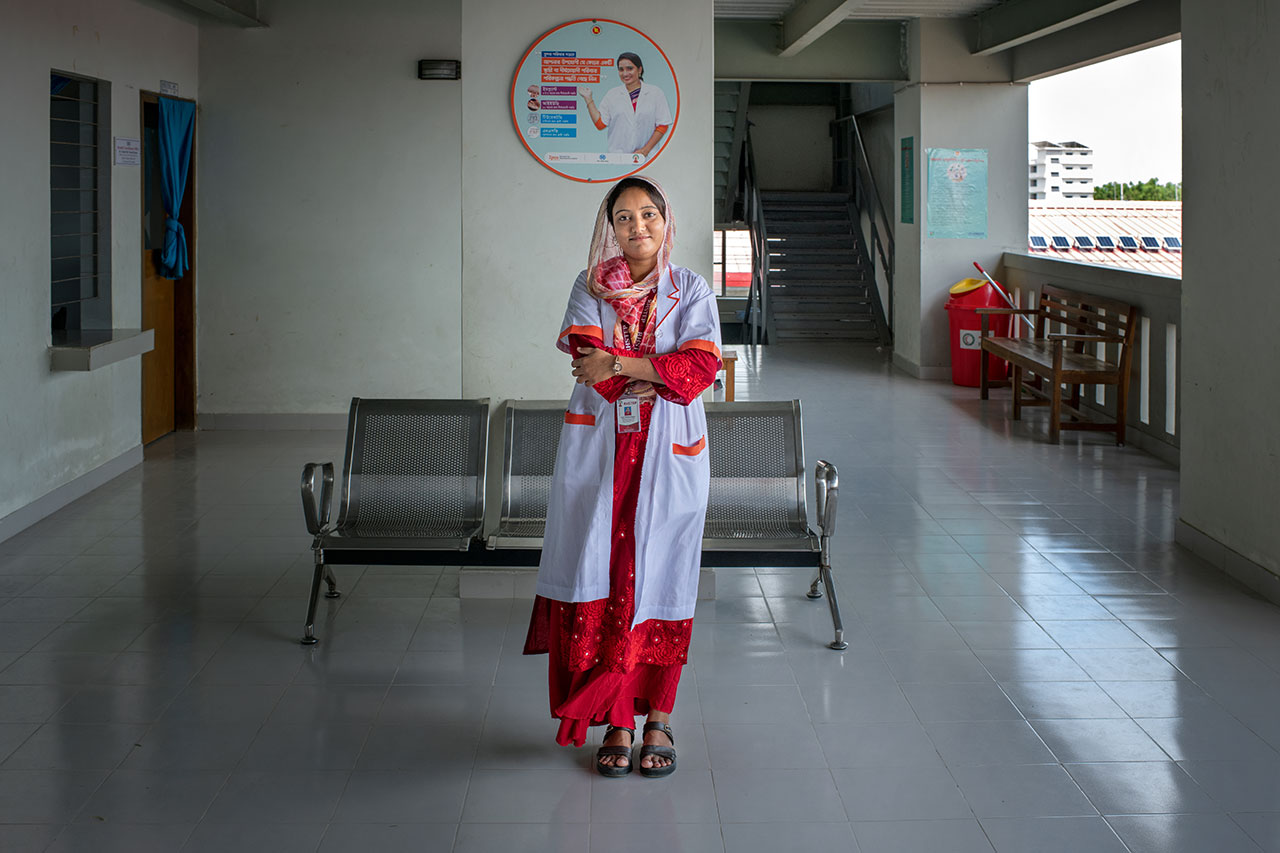
Bangladesh
Training health workers in Rohingya refugee camps
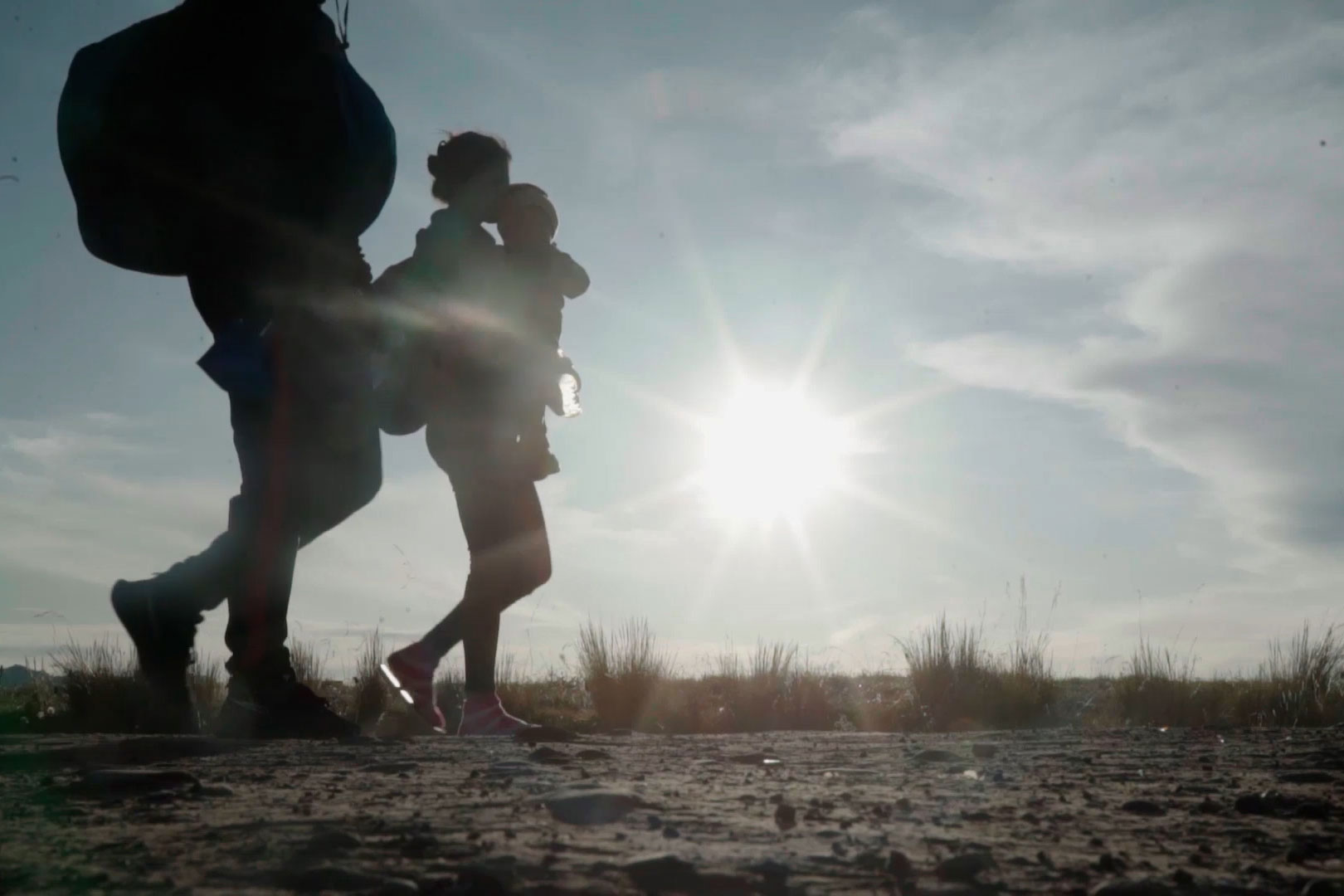
Bolivia
Providing health information and care to Venezuelan migrants
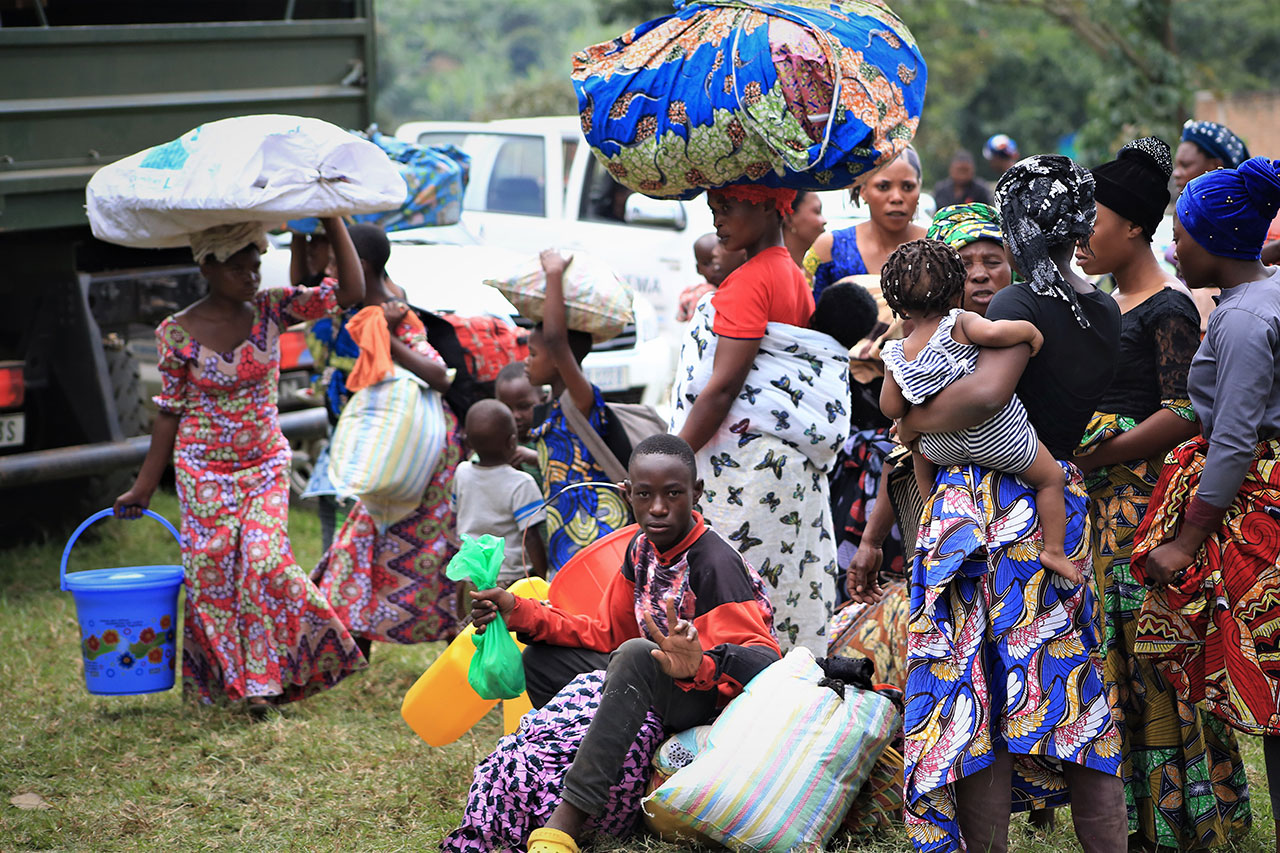
Democratic Republic of Congo
Ensuring care for internally displaced people
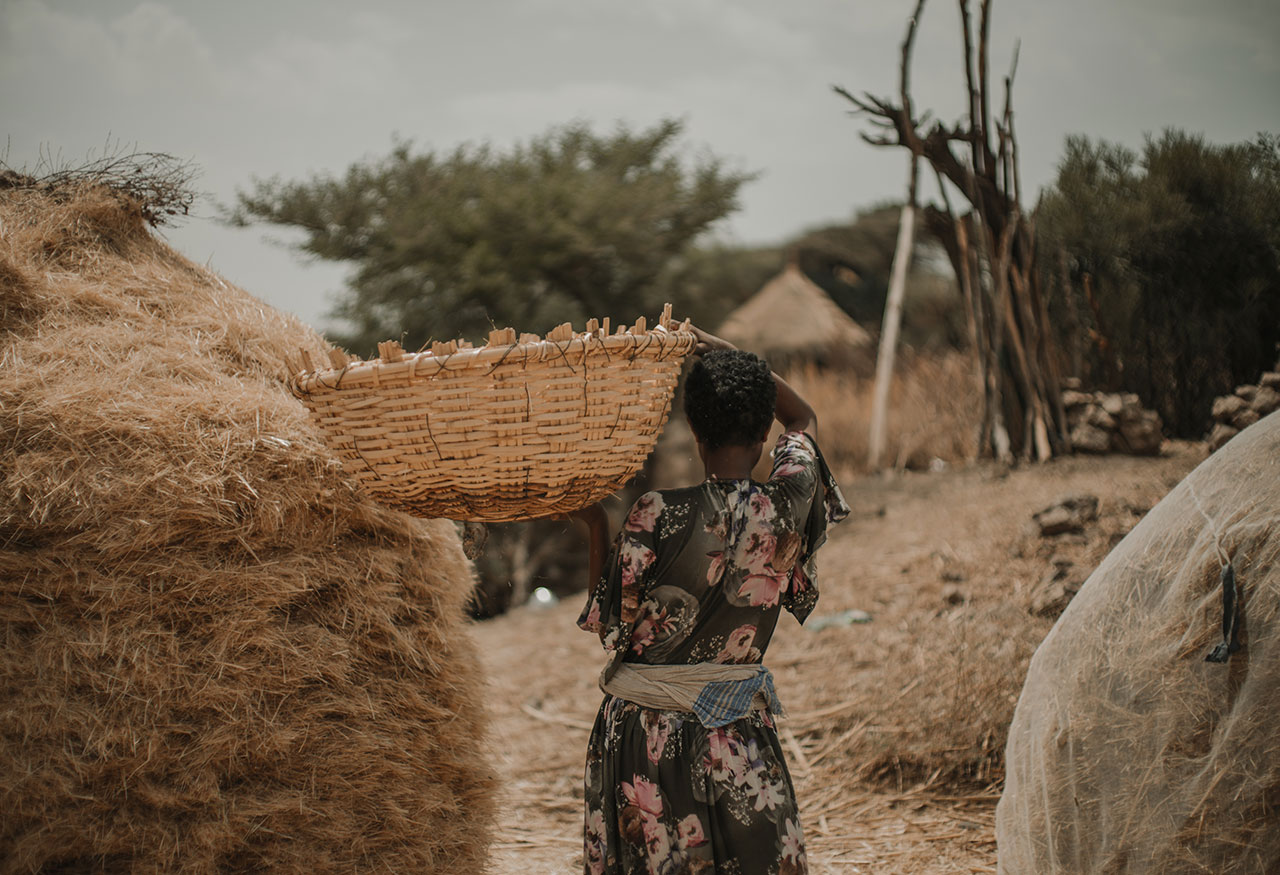
Ethiopia
Partnering with community groups and health workers during civil war
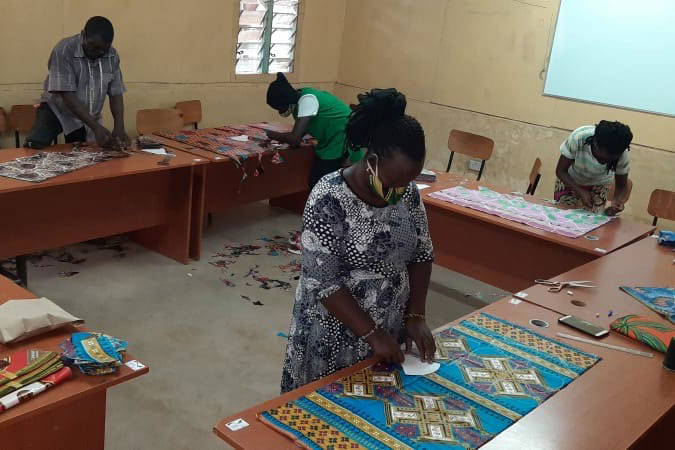
Kenya
Partnering with refugees to protect against COVID and ensure health-care access
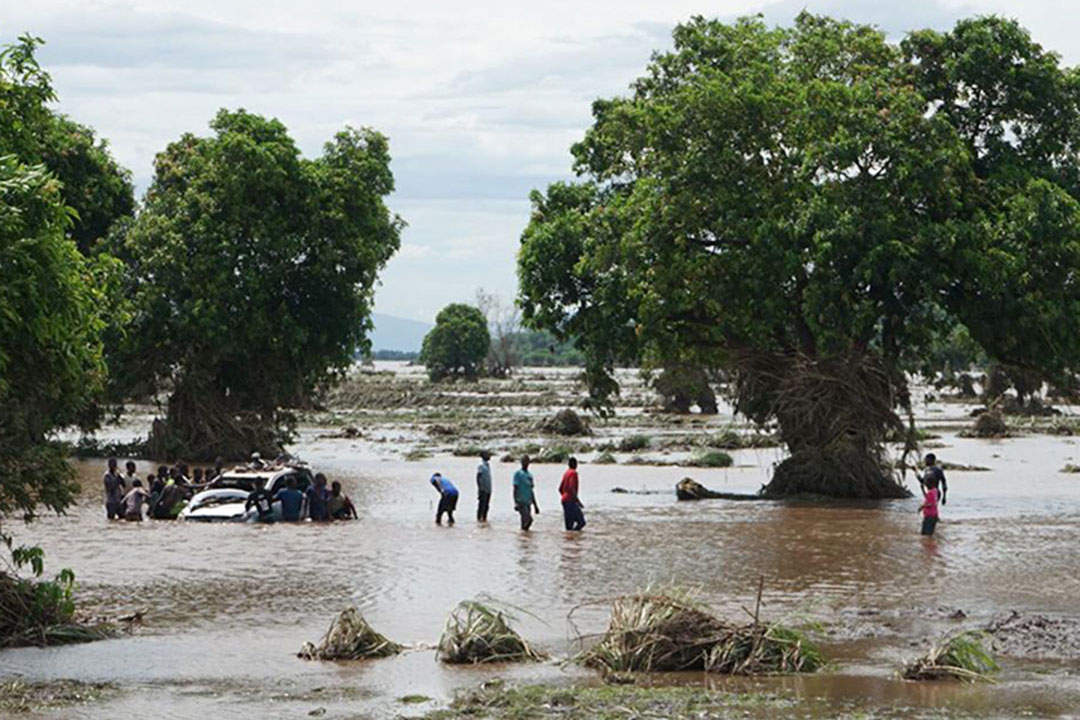
Malawi, Mozambique and Zambia
Coordinating a response after cyclones and flooding
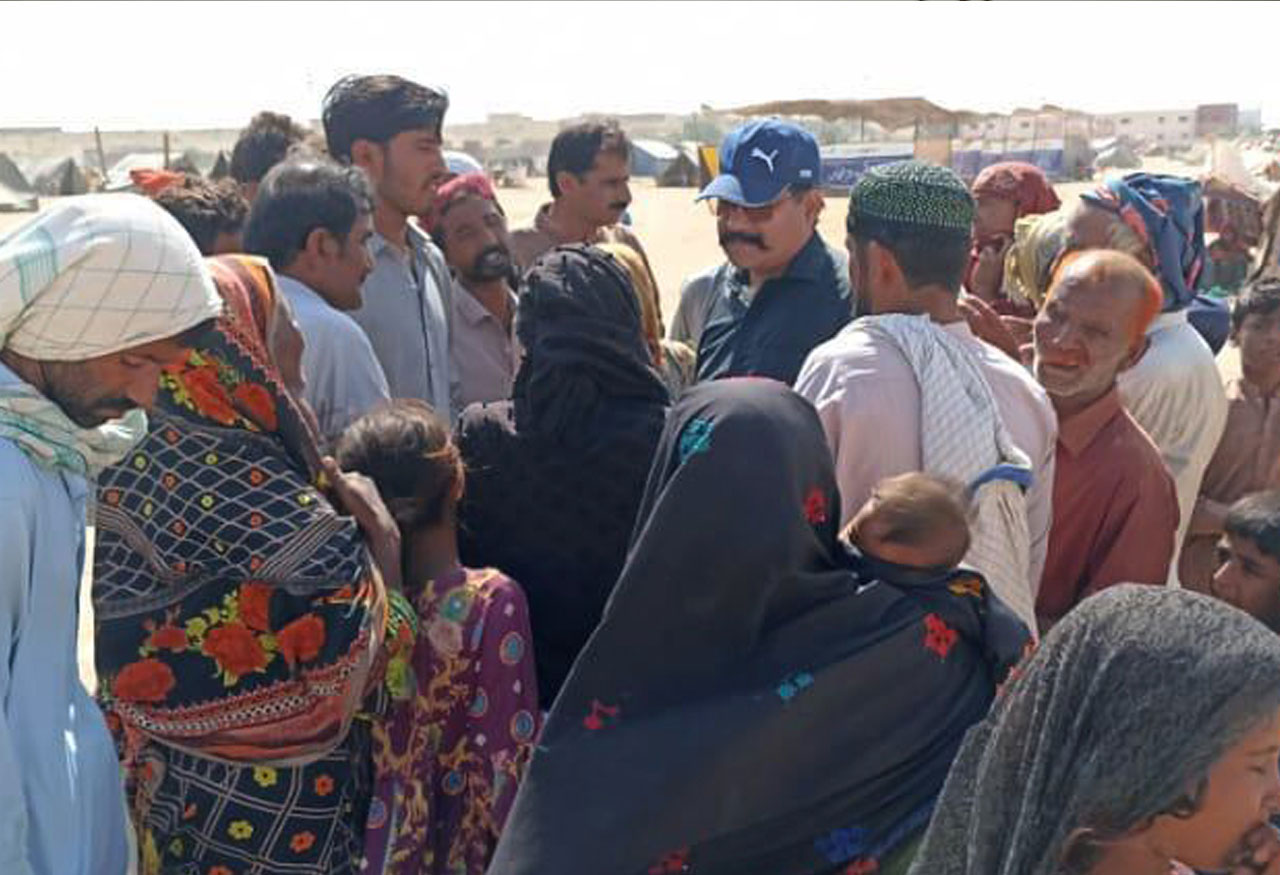
Pakistan
In flood-hit Pakistan, Ipas is ensuring reproductive health care

